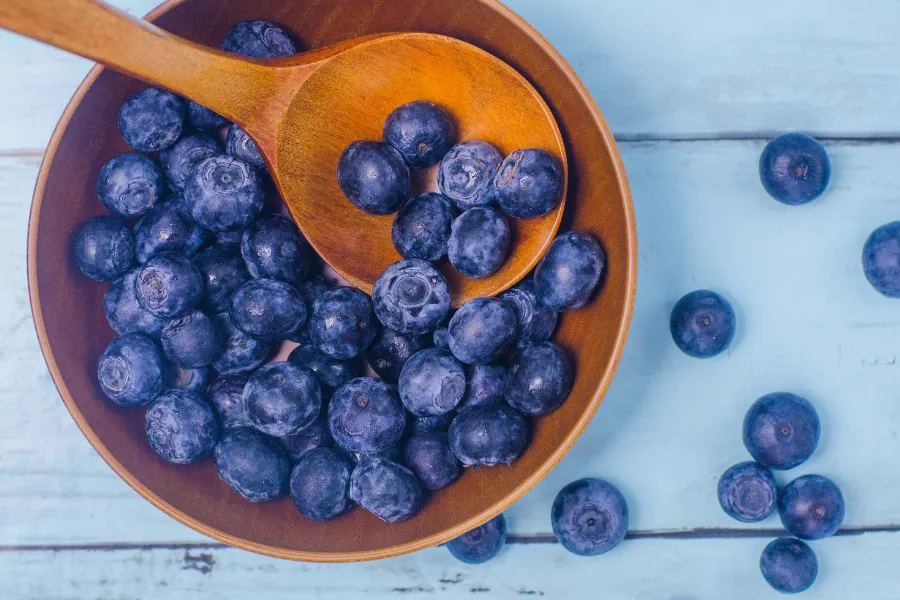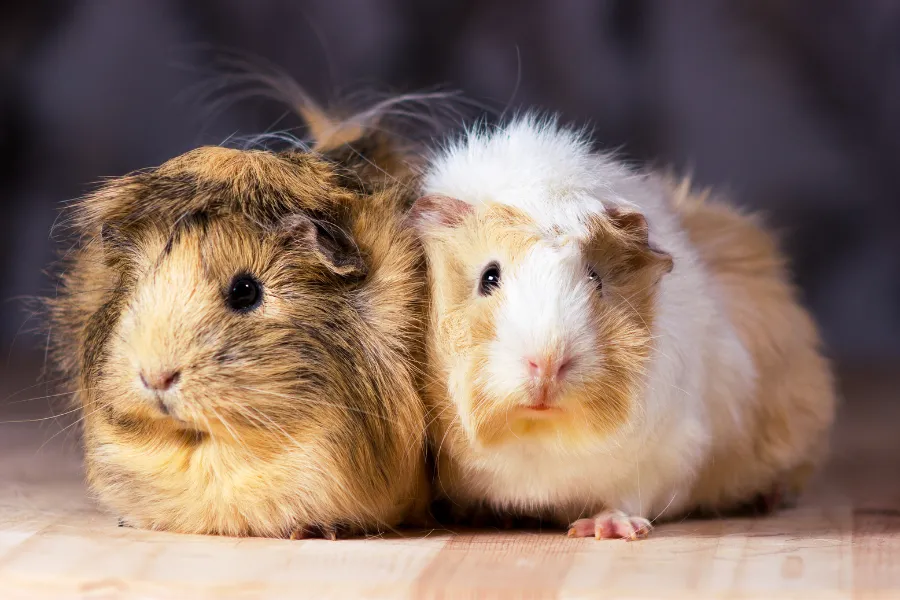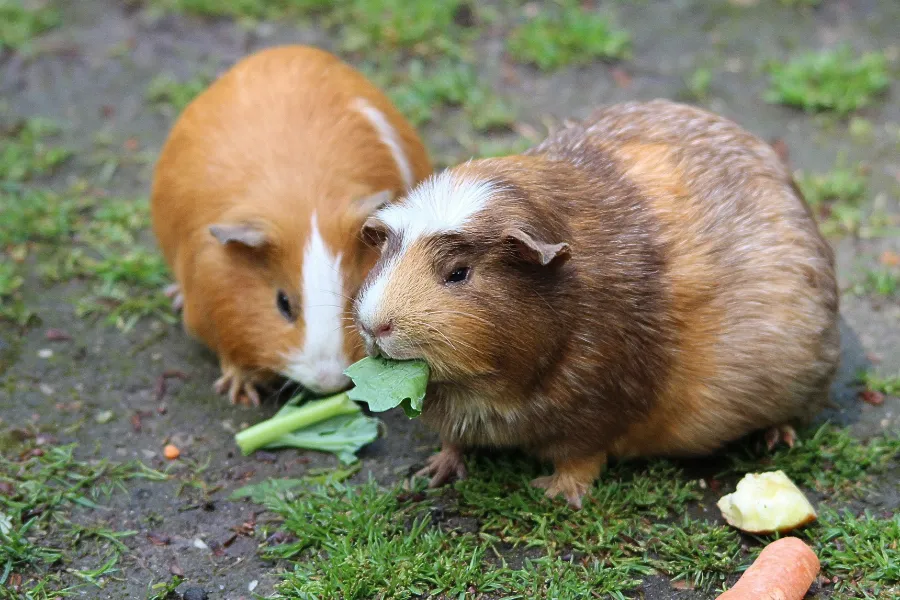Are you worried about your guinea pig’s health? Are blueberries a tasty treat? Is it safe? Yes!
Learn all the details in this guide. What parts of blueberries are safe for them? And how much can they eat? All the answers in here!
Importance of a balanced diet for guinea pigs
A balanced diet is important to keep your guinea pig healthy. Specialty pets like guinea pigs need specific nutrition. Hay should be their primary source of food. It has the vitamins and minerals they need. Vegetables should also make up a significant part of their diet. They are rich in vitamin C, dietary fiber, and antioxidants.
Fruits can be an occasional treat or supplement. But always keep their hay and veggies!
It would be best if you fed them a variety of fresh vegetables. Celery greens, zucchini, and yellow bell peppers have different vitamins and nutrients. Fruits like blueberries can be fed in moderation. They give natural sugars and antioxidants, which are essential for health. But be careful! Introduce one type of fruit at a time. Too much sugar can cause problems. Consistency is key!
Can guinea pigs eat blueberries?
Can guinea pigs eat blueberries? Yes, though, in moderation. Blueberries are suitable for guinea pigs because they provide antioxidants, vitamins C and K, and fiber. But they also contain sugar, so don’t overfeed them. Give them one ripe berry at a time.
If you plan to introduce new foods, watch for signs of adverse reactions or digestive discomfort. Ask your vet for advice.
The nutritional content of blueberries
Blueberries are low-calorie and nutrient-dense. A cup has 84 calories, 0.5g fat, 0.7g protein, 21g carbs, and 4.6g fiber. They are high in antioxidants like Vitamin C and other vitamins and minerals. Blueberries also contain phytochemicals that can reduce inflammation, combat aging, and protect cognitive function.

These excellent health benefits make blueberries a great supplement for guinea pigs. However, feed in moderation to avoid digestive issues caused by sugary treats or high-fat snacks such as sunflower seeds or nuts.
Whether blueberries are safe for guinea pigs to eat
Yes, blueberries can be a yummy treat for your guinea pig. But like other fruits and veggies, giving them small portions is important. Monitor for any digestion issues.
In the wild, guinea pigs eat plants, fruits, grasses, and tree bark. Domestically, they should eat hay and fresh veggies with fruits as treats. Human food is sometimes good for them – if appropriately given, guinea pigs can benefit from certain foods.
Blueberries have lots of nutrition. Add small amounts to the daily diet. Use them for enrichment activities. Blueberries contain vitamins A & C, iron, magnesium, and antioxidants. This help promotes healthier vision, skin health, and immunity. But too much sugar or fiber can cause digestive issues, so give small amounts only.
- Choose organic blueberries to avoid toxins.
- Frozen berries are more flavorful, so cut down on portion size.
- If there are changes in behavior or health, consult a vet.
Quantity and frequency recommendations
When feeding your guinea pig blueberries, offer just one to two days. These should make up at most 10% of its daily intake. Introduce new treats slowly, in small amounts. If you see any changes in behavior or physical discomforts, reduce portion size.
Fresh vegetables should comprise 70-80% of the diet, while fresh fruit can occasionally be used as a treat (10-20%). Offer fresh fruit at least once every few days or once a week.
Health benefits of feeding blueberries to guinea pigs
Blueberries are great for your guinea pig’s health. They provide dietary fiber, which helps with digestion and prevents intestinal issues. Vitamins and minerals like Vitamin C boost the immune system. Blueberries also contain antioxidants to fight free radicals and may even prevent cancer. Flavonoids and carotenoids may protect cells from damage, aging, and diseases.

Blueberries are high in natural sugar, making them a delicious snack. But remember to only feed in moderation!
Antioxidant properties
Blueberries are packed with essential nutrients and offer numerous benefits. Their powerful antioxidant content is one of the most important. Antioxidants are helpful compounds found in many foods. They fight the damaging effects of oxidation, which causes inflammation, cell damage, and DNA harm.
Blueberries are abundant in polyphenols. These are compounds that act as strong antioxidants in the body. They have been associated with lowered inflammation, improved immunity, improved energy, and better concentration. Plus, consuming antioxidants is an excellent way to protect against oxidative stress.
This natural process hastens to age and contributes to many diseases, like heart disease or cancer. Thus, blueberries’ antioxidant profile makes them ideal for guinea pigs who wish to gain maximum health benefits from eating fruit and vegetables.
Supporting urinary health
Blueberries give guinea pigs vitamins and minerals like C, K, fiber, and manganese. These nourishments help the guinea pig’s urinary health by diluting the urine. This avoids bladder stones. Furthermore, blueberries offer antioxidants that fight cell damage and keep pets healthy.
However, don’t give more than one teaspoon of blueberries daily, as they contain sugar. Too much sugar can cause bellyache and even diabetes. Also, rinse off any pesticide residue before feeding blueberries to your pet.
Risks and considerations of feeding blueberries to guinea pigs
Blueberries are great for guinea pigs. But, to keep them safe, we have to be cautious. Here’s what to consider:
- Nutrients: Blueberries are full of Vitamin C. But give up to one or two a day. Organic is best, as it won’t have pesticides.
- Frequency: Don’t overfeed! Treats should only be 10% of their diet. Hay should be the primary source.
- Size: Berries should be small. So they can easily chew and swallow without choking.
- Variety: Add fresh fruits/veggies 3-4 times a week. This gives balanced nutrition and variety.
Sugar content and potential for weight gain
Guinea pigs love blueberries! They have natural sugar, so it’s a great treat. But, too much sugar can cause unhealthy weight gain. So, it’s best to keep blueberry consumption minimal. Blueberries have more sugar than other snacks, but they’re still okay in moderation.
Remember to wash them before feeding them, too. Pesticides and fertilizers can be on fresh blueberries.
Oxalate content and potential for bladder stones
Oxalates are molecules found in many foods, like blueberries. In small doses, they have health benefits. However, cats, dogs, and guinea pigs can be sensitive to oxalates. This could lead to hyperoxaluria – too much calcium oxalate.
Blueberry oxalate levels are low. But caution is still needed when offering them to guinea pigs. To avoid problems, limit how many blueberries they get. Also, ensure their diet has vitamin C and minerals from fortified hay or pellets made for guinea pigs.
Importance of introducing new foods gradually
Introducing Guinea Pigs to the new food, like blueberries, gradually introduces it. Give one or two small berries and watch their reaction. If they tolerate it, increase the portion size. New food should be given on an empty stomach and with a regular diet.
To protect them, always wash them and ensure they are free from pesticides, additives, and other harmful elements.

Other fruits and vegetables that are safe for guinea pigs
Blueberries are not the only food safe for your guinea pig. Raw fruits and vegetables are safe if washed, cut into small pieces, and served fresh.
Fruits: Apples(no seeds), bananas, blackberries, grapes(seedless), oranges(no rind), papayas, peaches(no pit), pears(no seeds), strawberries.
Vegetables:
- Artichoke leaves/hearts* , bell peppers/sweet peppers/chili peppers* , broccoli* , Brussels sprouts* , cabbage leaves** , celery leaves** , cauliflower florets* , clover* , dandelion leaves/dandelion greens** , endive** , escarole** , kale* , parsley* , spinach*
Asterisks are besides some foods. This is because they have high levels of oxalic acid, which can cause health problems when eaten in large amounts. Due to low nutritional value and high water content, lettuces with double asterisks should be avoided.
Recap of key points about feeding blueberries to guinea pigs
Blueberries are a safe snack for guinea pigs, but only in moderation. For your pet’s health, follow these tips:
- Give blueberries as an occasional treat, not daily.
- Refrain from replacing other veggies and fruits with blueberries.
- A single berry is good portion size.
- Cut larger berries into pieces if more than one guinea pig is eating them.
- Wash off any dirt before offering.
- Guinea pigs will usually show signs of enjoying the treat. If they seem distressed or picky, don’t feed them the fruit again.
